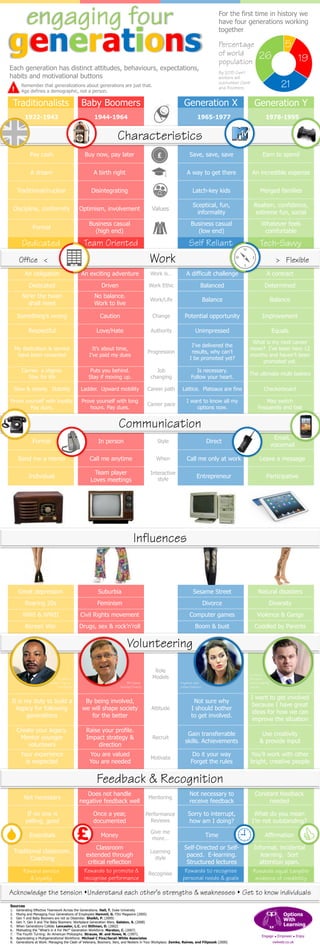The document discusses the dynamics of a multi-generational workforce, highlighting the distinct characteristics, attitudes, and motivations of Traditionalists, Baby Boomers, Generation X, and Generation Y. It emphasizes the challenges and opportunities in managing these differences, as well as the unique values and expectations each generation brings to the workplace. The content also underlines the impact of historical events on generational perspectives, with suggestions for improving teamwork and communication across generations.
